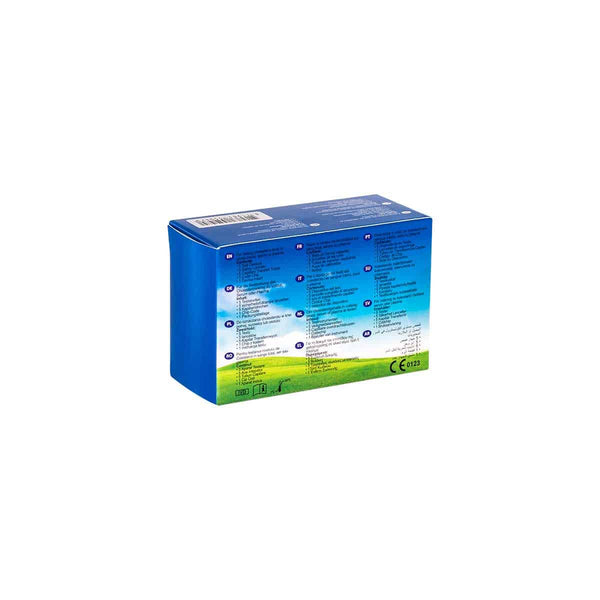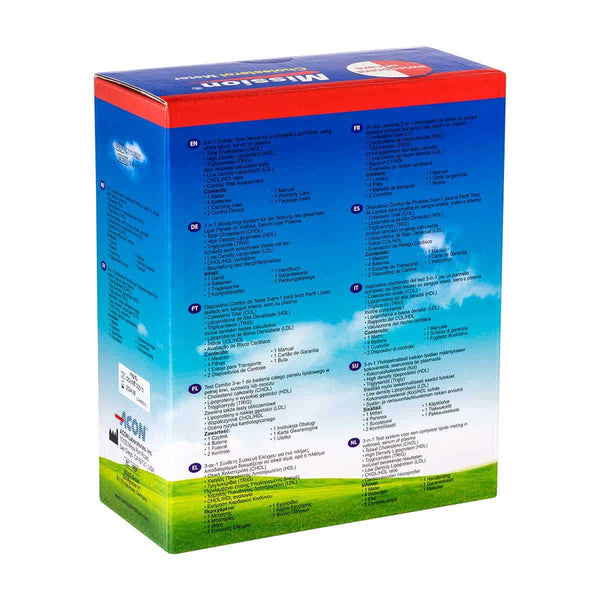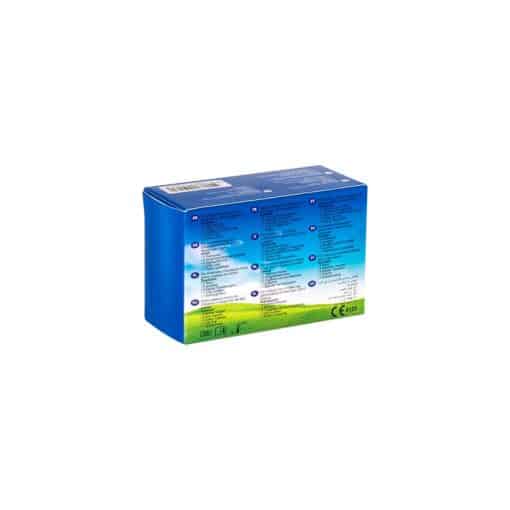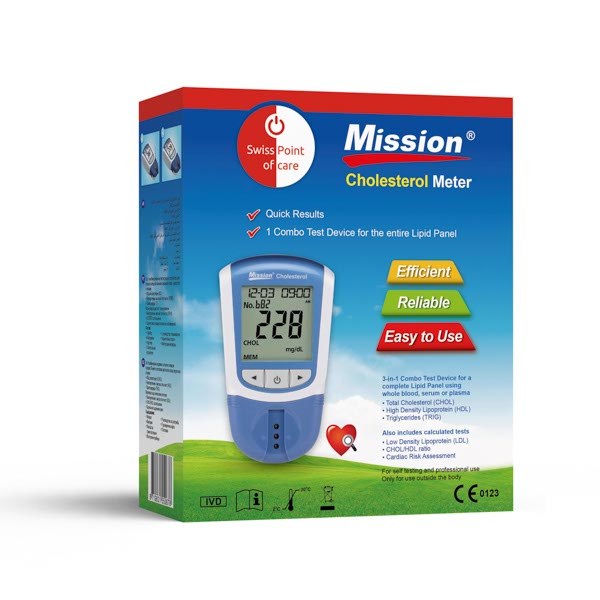Why should I measure?
Cholesterol consists of HDL and LDL and is an important building block for your cells. HDL is also referred to as the ‘good’ cholesterol because it collects all unused cholesterol from your body and transports it to the liver where it is broken down. So it cleans your veins, including the remaining LDL particles.
LDL is also known as the ‘bad’ cholesterol. It is not really bad because your body needs it. But LDL can oxidize more easily and thereby attach itself to the vessel wall and eventually cause blockages in the vessels which cause a greater risk of cardiovascular disease.
Balance
It is the balance between HDL and LDL that is therefore important. Enough of the ‘good’ HDL cholesterol in relation to the total thus contributes to a healthy cardiovascular system.
For an optimal balance it is important that you consume enough healthy fats. So less hardened, processed and saturated fats - which decreases LDL, and more mono and polyunsaturated fats, which increases HDL.
Healthy and unsaturated fats can be found in: Extra virgin olive oil, krill oil, fatty fish such as wild salmon, herring, sardines and mackerel (in moderation), Linseed and linseed oil, Chia seed, Nuts, Avocado, Hemp seed, Fish oil, Eggs, Kernels and seeds such as sunflower seeds, pumpkin seeds, pine nuts and sesame seeds.
Healthy Fat
In the keto diet, fat is used as your body's main fuel instead of sugar and carbohydrates. You add extra fat to your diet. It is important that you choose healthy fats such as MCT and coconut oil, krill oil, nuts, avocados, olive oil and oily fish.
The keto diet, without sugars and carbohydrates and with a higher fat intake, can indeed increase your total cholesterol slightly. This is good, as long as you choose healthy fats, which improve the condition of your vessels and protect your heart.
Cholesterol
Function and Measurements
Cholesterol is an essential waxy substance used by the body to build cells and make vitamins as well as other hormones. The majority of cholesterol is known as blood, or serum cholesterol and is produced by the liver, whereas the rest comes through the consumption of food and animal products, which is referred to dietary cholesterol1,2.
Good and Bad Cholesterol
There are two main types of cholesterol: the high-density lipoprotein (HDL) which is commonly referred to as the good cholesterol, and the low-density lipoprotein (LDL), known also as the bad cholesterol. The role of HDL is to carry the cholesterol from your cells back to the liver and to clean the build-up of plaque in your arteries via the liver3,4.
LDL carries cholesterol toward the cells that require it, and when there is too much, it can cause the build-up within the artery walls. There is also ongoing research that suggests that abnormally high levels of LDL can lead to heart attacks, strokes, peripheral atrial disease and transient ischaemic attacks (mini-strokes)3.
It is however important to understand the role that cholesterol plays within the body. The terms “good” and “bad” give rise to a lot of confusion, when in fact both forms of cholesterol are necessary for proper cell function and maintenance. They both serve as a key building blocks, created by the liver to aid in the repair of cells and muscular tissue, as well as ensuring proper development of essential hormones.
Triglycerides
In addition to dietary cholesterol, the consumption of foods and animal products also raise your triglyceride levels. If you consume extra calories, namely carbohydrates, your liver increases the production of triglycerides to store in your fat cells for later use as energy. When necessary, your body releases them as fatty acids for heat and metabolism. A sustained high triglyceride level, can also be a cause of concern as it shares the same health risks as cholesterol4. Your triglycerides level will rise naturally as your metabolism breaks down the food and funnels it into your fat cells.
Reducing Cholesterol Levels
- There are a number of ways to reduce dietary cholesterol, here are a few adjustments you could consider.
- Consuming less saturated fat (lean meats, low-fat animal products)
- Limit calories from fat to be less than 30% of your total calorific intake
- Limit processed and simple carbohydrates (sugar, white flour, baked/deep fried foods)
- Eat foods rich in Omega-3 fatty acids (fish or supplementation)
- Eat more fibrous foods, 25-30g per day (fruit, vegetables, whole grains)
- Limit alcohol consumption
- Quit smoking
- Increase aerobic exercise











